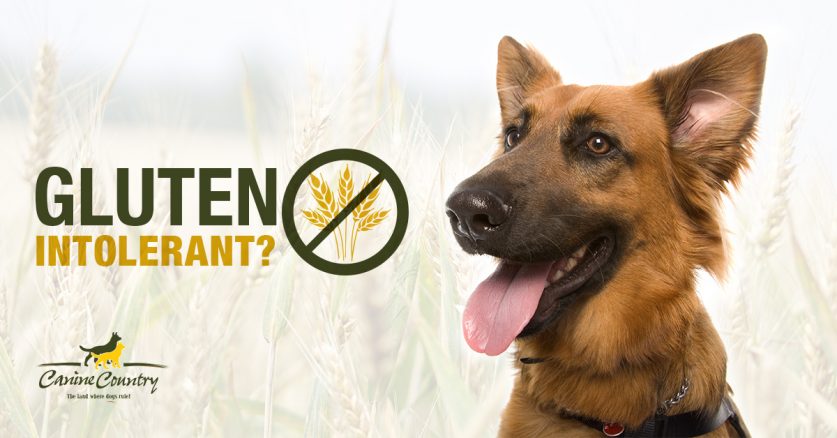
Can Dogs Be Gluten Intolerant?
Posted Nov 19, 2019 in Health & Safety
At the grocery store, you’ve probably noticed the aisles in the frozen and dry departments designated for gluten-free items. Gluten-intolerance is nothing new, but did you know some pups live with this intolerance as well.
What Causes a Gluten Intolerance
Just like with humans, most canines have digestive systems that are perfectly fine processing wheat, rye, barley, and oats. Some furry friends are gluten-sensitive, though, causing their small intestine to become inflamed when this substance is ingested. A gluten-intolerance/sensitivity is an allergic reaction that causes a dog’s immune system to essentially attack their gastrointestinal tract. In effect, causing severe damage to the lining of the intestine.
Signs & Symptoms of Gluten Intolerance in Dogs
When the intestinal lining is damaged, it prevents the gut from absorbing proteins, carbohydrates, fats, vitamins, minerals, and even in some extreme cases, water. All of which are vital to your dog’s health and survival. So the more gluten a gluten-intolerant dog eats, the sooner you’ll start to see visible signs of weight loss.
Symptoms Include:
- Poor coat & skin condition
- Hair loss
- Excessive licking or chewing of paws
- Diarrhea
- Inflamed & red paw pads
- General sick behavior
- Poor body condition
How is a Gluten Intolerance Diagnosed?
If you have any suspicions that your pooch is gluten-intolerant, the best thing to do is take them to the veterinarian to get them adequately examined. Once there, the vet will take blood and urine samples to assess your pup’s current state and then put them on a gluten-free diet to monitor if their health improves at all. If your furry friend makes impressive progress over the following two to four weeks, their vet will likely reintroduce a grain diet and monitor for relapse. If Fido gets sick again, the most likely conclusion is they are grain-intolerant. From there, your pup’s vet will strongly advise you to keep them on a gluten-free diet.
Treating a Canine with a Gluten Intolerance
There may be no “cure” for gluten intolerance, but treating the condition is pretty simple. You just need to ensure you feed Fido a gluten-free diet and lucky for you – most dog food companies offer just that. Once you’ve removed gluten from your pooch’s diet, you should start to see significant progress in their health, coat condition, and levels of energy.
Learning your pooch has a gluten intolerance can be rough. But with the proper knowledge on the condition treating it can be easy, and soon enough, your furry friend will be back to their old fun-loving self again.